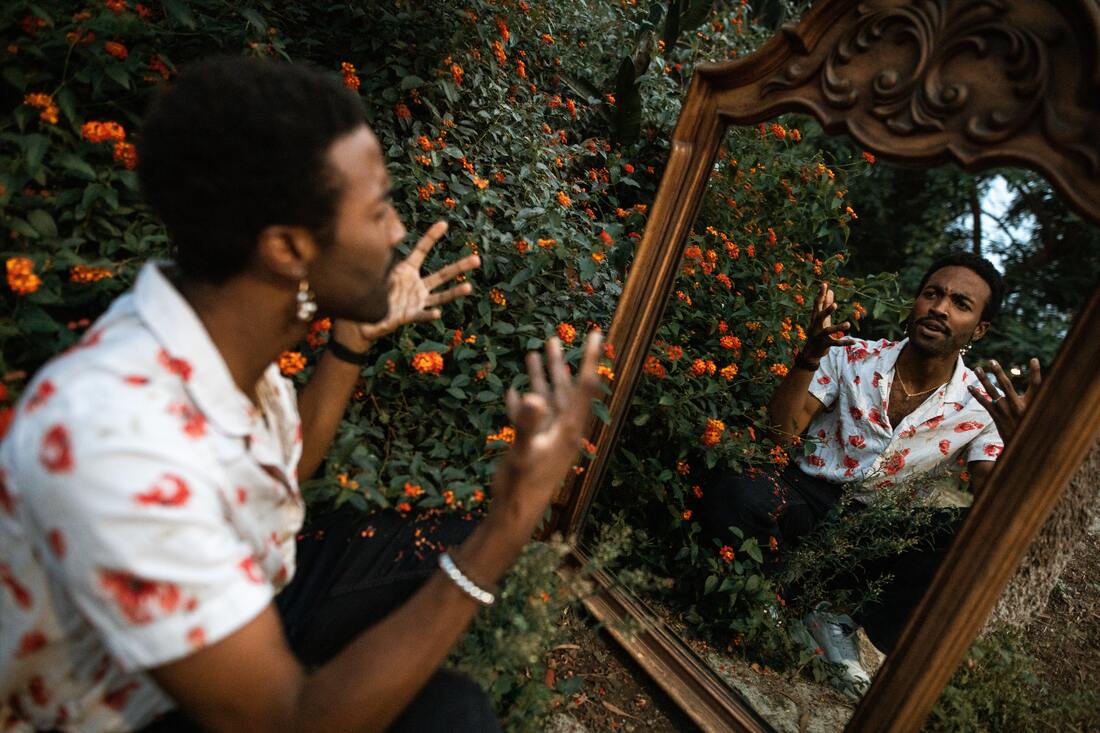|
It is true. Winter is coming! AHHHH! I don’t really know anyone who isn’t at least vaguely anxious about this right now. In a time when the usual uncertainty of life is magnified, and our biggest lifeline for connection and company - outside gatherings - is becoming less and less accessible. To be blunt: if we weren’t anxious about this, we’d be dead. Because every human alive experiences anxiety. We have evolved with anxiety to signal challenges ahead. To fight or flee the bear. Coronavirus is a real threat to our physical health, social isolation is a real threat to our mental health. To be anxious about these threats can be very reasonable and adaptive. Anxiety can increase our energy and help us prepare, problem solve, cope ahead. But what about when our anxiety is too high, or is more of a constant simmering, a background buzz, that doesn’t seem to give us helpful information about what is coming or what we need to stay safe? How can we understand this kind of anxiety? Understanding Anxiety In Emotion Focused Therapy (EFT) literature, generalized anxiety can be thought of as a form of coping. Not the most sustainable form of coping persay, and not necessary coping that we are conscious of. Still, this kind of anxiety serves a function: to ward off painful feelings. Generalized anxiety is born from old wounds, likely from childhood, when we felt unsafe and were not adequately protected or supported. Emotional injuries, just like physical injuries, need to heal; otherwise, they will continue to cause us problems. If our emotional wounds are not processed, not worked through, they are easily triggered in our day to day. Then we go right back there - right back to the old wounded states of fear, shame, pain and sadness. Back to the despair and helplessness of not getting adequate emotional support when we needed it. So, our old wounds get triggered. The triggers usually happen outside of our awareness. Painful emotions like fear or pain threaten to emerge. And then, deep down, we get terrified, whether consciously or not, that we won’t be able to handle these feelings, that we will lose our minds, break down, become undone. Enter Anxiety. Anxiety redirects our energy into worrying - rather than feeling our old, emerging pain. Anything but that. This kind of generalized anxiety also aims to protect us from ever experiencing anything in the future that remotely resembles the hard stuff that we’ve endured in the past. That’s why the anxiety is so compelling: we believe it’s going to protect us, keep us safe in the case of future threat. Make 100% sure that there is no possibility of anything bad happening. Of course, the anxiety itself can be excruciatingly painful; perhaps just as painful as the old wounds themselves. To review this understanding of generalized anxiety: something, we may not be sure what, triggers our old unresolved wounds, pain that remains unprocessed, unspoken, unfelt. And so we worry to distract ourselves and to try to make sure we are not hurt again. This is a lot of theoretical mumbo jumbo, you may say. How does this information help us work with our anxiety when it arises? Allowing and Working with Anxiety First and foremost, it can help us to allow our anxiety when it arises. To be more accepting of it, rather than fighting it. More self-compassionate, rather than shaming ourselves for feeling anxious. Most of us fight our anxiety with all our might; we say - “oh no, not again! I can’t possibly bear this anxiety! I must defeat it! I must make it go away. I can’t believe I’m still dealing with this! How terrible! I must really be nuts!” What if, instead, we were sometimes able to recognize our anxiety for what it is - an effort - albeit misguided - to protect us, keep us safe, in the context of feeling unsafe in the past. Like an inner over-protective parent. What if we said to our Anxiety instead - “hey Anxiety! You are here. That’s ok! I see how hard you are working here to protect me, to keep me safe!” Maybe you then experiment with some respect, or even gratitude - “hey Anxiety - thanks for looking out for me!” Or maybe this feels too far. See what resonates for you.
Try saying to your anxiety - “yes, I get it, I get why you are working so hard, to warn me of all the possible dangers ahead. Because yes, we really were vulnerable in the past. Things really were scary back then!” Maybe this unlocks some glimmer of strength. Some glimmer of anger - of - “Hey Anxiety - this really isn’t helping me, despite your good intentions! Your constant worry is excruciating, and exhausting! Please STOP!” And maybe you go even further - “Please, Anxiety, let me feel my feelings - because I am strong enough to feel my hard feelings, at least sometimes. I can feel sad, ashamed, scared, and it won’t kill me! “And actually, Anxiety, when I feel these things, I don’t need you to scare me. I need support from others - and from myself!” It is easiest to experiment with relating to our anxiety in this way when it is less intense. When it gets stronger, we may need to find other ways to cope. If you feel overwhelmed, please reach into your coping toolbox and engage in self-soothing behaviours that work for you: sip a hot chocolate, take a bath, light a candle. Watch your favorite TV show. Reach out for support to someone who can help. In truth, the most effective way to work with high anxiety is in the presence of a skilled loved one or therapist. Because, again, anxiety is born from old wounds. And old wounds are healed by being felt, in the presence of a compassionate other, and the most compassionate parts of ourselves. Because working with it alone - or with someone who actually makes it worse - can definitely make us spiral. Back into old vulnerable states of feeling so unprotected and alone. Because for anxiety to ease up, it needs to learn - and relearn - that we do have enough strength and support - from ourselves and from others - to cope with life and with our feelings. So yes, winter is coming. And it makes sense that we’re all anxious about it. See if you can offer your Anxiety some acceptance and validation. “Yes Anxiety, it’s ok that you are here! It makes total sense!” Maybe you stop there, for now. Or maybe, when the timing is right, you ask your Anxiety to shed a little light onto the hard feelings that are coming up, that anxiety is trying to protect you from. Tell your anxiety that you are strong enough, self-compassionate enough, to dip into some of your underlying hard feelings. Remind your anxiety that you can dip back out if it feels overwhelming. Begin to cultivate trust that you are sowing seeds for your own growth and healing.
2 Comments
|
Proudly powered by Weebly



 RSS Feed
RSS Feed